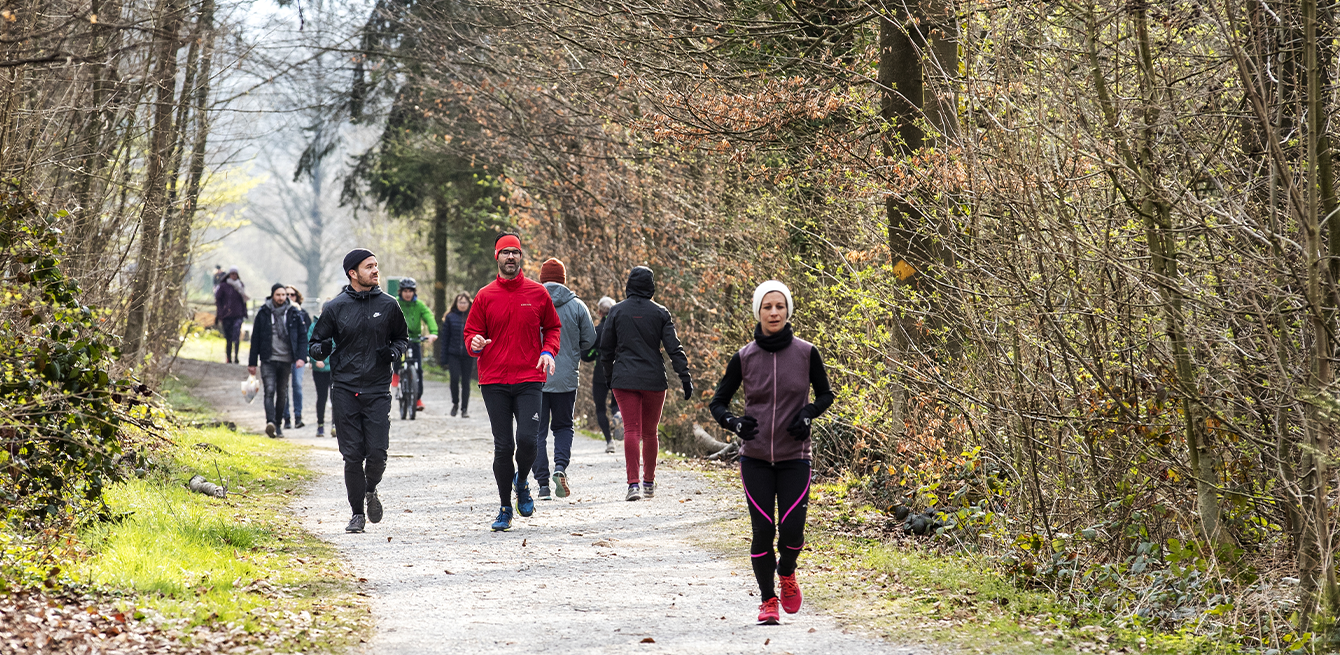
The average weight of Swiss people rose by more than 3 kg during lockdown. And healthcare experts are worried.
In 2020, the Swiss gained an average of 3.3 kg according to a University of St. Gallen study. This increase is unusual compared with other years, which have seen an average weight gain of only 100 g per person. “These figures are especially striking because they might appear totally inconsistent with the image conveyed via social media during the semi-lockdowns, when people generally showed that they were going back to a healthier lifestyle,” explains Lucie Favre, associate physician with the Service of Endocrinology, Diabetes and Metabolism at Lausanne University Hospital (CHUV). But the reality is starkly different. Behind the home-made bread and home cooked meals made with local products, many people were suffering during this period.
Obesity was recognised as a chronic and complex disease in 2008. However, many people suffer from stigma when getting care. Medical staff sometimes blame them for eating too much or exercising too little, even though often fail to lose weight despite their efforts. These repeated failures can increase feelings of anxiety and make them even more vulnerable to weight gain. Doctors’ offices and hospitals also lack suitable equipment. Both in terms of infrastructure (beds, chairs) as well as equipment such as adapted blood pressure monitors or splints in the right size.
The health crisis has also changed our awareness about obesity.
An individual’s energy needs are essentially determined by the basal metabolic rate and expenditure from physical activity. To find out exactly what the basic energy expenditure is, i.e. the energy required to maintain the metabolic activity of the tissues, cardiac activity or breathing, a person can have their indirect calorimetry measured.
In this type of examination, the patient wears a face mask that measures the amount of oxygen used and the amount carbon dioxide released. Resting metabolism is significantly influenced by muscle mass. This explains gender differences, as muscle mass is predominantly higher in men.
In clinical practice, basal metabolic rate is rarely measured, but a person’s metabolic needs can be reliably predicted using formulas that take into account the person’s sex, weight, height and age.
“From the first weeks of semi-lockdown, we noticed an increase in eating disorders in our patients during the telephone consultations that we kept.” Although people with obesity are advised to limit their food intake, the pandemic encouraged them to do just the opposite, to shop for more on one trip to avoid contact with others. That impacted weight gain. But that’s not all. “The media and social media showing images of people getting back in touch with themselves and eating healthier foods reinforces the guilt that overweight people can feel. It causes a lot of damage. It can increase their feeling incapable of handling the situation and cause them to start eating compulsively.”
The lockdown and working from home also limited options for physical exercise. “For the majority of the population, the only physical activity they get is going to work,” Lucie Favre says.
Weight gain is definitely always linked to an imbalance between calorie intake and energy expended. However, don’t believe that we are all equal when it comes to gaining weight. Scientists have not yet ascertained why some people gain more weight than others.
Contrary to what most people think, overweight people don’t necessarily have low metabolism. “The way metabolism works is complex,” Lucie Favre says. “Two people walking the same distance can burn a totally different amount of energy. And that’s not due to metabolism itself, but for example to the way you move your body.” That is also what a study found that was published last August in Science magazine: energy expenditure only starts to decline after age 60. Energy expenditure remains stable between the ages of 20 and 60.
The pandemic has also changed our awareness about obesity. In her department, Lucie Favre measured a 25% increase in consultation requests. “As Covid affected a lot of people, and being overweight was a risk factor for developing a serious form of the illness, overweight people realised that obesity is a disease, and it’s important to have it treated.”